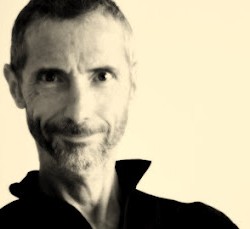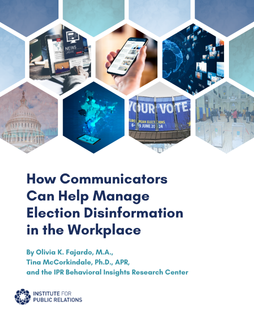
The Measurement Summit, like the Measurement Commission itself, attracts a distinctive mix of professionals who care about excellence and effectiveness in the practice of public relations. Summit participants want not only to be successful practitioners of public relations, they also tend a bit to the high-minded (concerned about ethics and means vs. ends of PR) and to the pointy-headed (lots of hand-wringing over purpose, methodology, and standards).
Uniquely, the Measurement Summit attracts public relations professionals who work at corporations, government agencies, non-profits, and agencies; it also includes a wide variety of professional researchers – ranging from survey research experts, to market and communications channel analysts, to media monitoring and analysis experts, to qualitative researchers. The Summit also welcomes university professors from communications, marketing, and business fields. It is fair to say that from each of these categories, the leading organizations of our nation are represented – from Fortune 50 companies, the top PR agencies, highest-profile non-profit organizations, the most sophisticated and competitive providers of research services, and the highest-ranked universities in PR and communications.
Over the years the Measurement Commission members have structured the Summit agenda around two goals: 1) to provide a peers-among-peers networking and relationship-sustaining opportunity for the high-minded and pointy-headed in public relations and 2) to foment – or give a bit of push – to reform and best-practices movements. The Measurement Commission members and Summit participants have been prominent players, alongside the PRSA, AMEC, Council of PR Firms, and other organizations, in an admirable array of initiatives:
- In defining, establishing, and educating the PR profession about public relations terminology.
- In advancing the symmetrical model of communications for the practice of public relations.
- In making the business case for public relations.
- In discrediting the use of AVEs (advertising value equivalencies) in evaluating the impact of PR.
- In clarifying the concept of ROI (return on investment) as it is applied to PR and marketing services.
- In developing workable market-mix models of communications analysis.
- And – always – stating positions, and promoting of authoritative, responsible, and ethical standards for the monitoring, measuring, and analysis of public relations, including the evolving varieties of social media.
On October 3 – 4, 2012 the Measurement Summit re-convened in “3.0” form. (1.0 had been the founding years: just getting the industry to pay serious attention to applying scientific method and management science within PR and building the personal relationships that became the Measurement Commission. The 2.0 era brought measurement and evaluation methods “to the masses,” particularly through fundamental educational sessions and PR research 101 / boot-camp experiences.)
Measurement Summit 3.0 was intentionally a smaller meeting of the cognoscenti (geeks) that recalled the earliest meetings. The electrical power and wifi outage that morning the conference convened helped to focus everyone’s typically multitasking-fragmented-attention mode to the meeting. The “where do we go from here” spirit informing all the topics considered ultimately gravitated on two imperatives.
1: United We Stand. Divided We Flounder. The quest for, and enforcement – through social pressure – of standards is not new to the Measurement Commission and the Summit. PR research professionals can legitimately cite real progress. But the pressure to deliver has gained new urgency. In the intensifying land-grab among various marketing and communications disciplines and services, the digitally and quantitatively sophisticated have the edge. Peter Drucker long ago preached that you cannot manage what you cannot measure; today we can add that you cannot get to the top of the communications status ladder in the CEO’s mind without an analytics and a metalanguage that that is transparent, insightful, and open to data inputs from other parts of the organization and readily transferrable and useful to enterprise-wide audit.
For young, new people entering public relations, we need to demand higher levels of numeracy and digital literacy. For mature and experienced practitioners, we just have to get over ourselves and face facts about our employers’ expectations for data-driven and methodologically consistent practice, the changed media environment, and consumer behavior.
Put another way, enough talk already about standards and methods. We (PR professionals) have got to do it (implement and live the standards) or resign ourselves to some other function in the market-mix, multichannel communications model to do it for us. Measurement Commission members in cooperation with lots of other good professionals have completed or are well on the way to establishing standards for public relations and social media research, in all the dimensions of conceptualizing problems, methods of application, and ethical behavior. An equal resolve and commitment now needs to made to educating and encouraging the industry leaders to sign-on and walk-the-walk.
2. Brave New World. With time, some of the awe and wonder about social media has subsided (it’s like Justin Bieber getting older: what really was all that fuss about?). It has now sunk in that most people are not on Twitter and among those who are on Twitter, more than one of them has bought 1,000 or more followers for $240 from an obliging offshore company. We now admit that probably a majority of Facebook “Likes” are frauds or meaningless (in terms of pointing toward a transaction or environmental change of any measurable kind). Yes, digital media and new communications technologies have changed the world – but just because Google Analytics is free and fairly easy to use does not mean that we have amazing new predictive insights about markets or that human nature has mutated.
Socialized communication, location marketing, mobile media and transactions (and all their attendant analytics) – and more – do not represent the sum of western civilization. They do represent a first wave of vastly more robust technologies mediating market behavior and social change. While public relations people – “on the ground” – are sometimes floundering just to establish a common currency of concepts and practice among themselves (see point 1, “United, We Stand, “ above), it is difficult to identify how and where PR people are on the playing field in the advance of communications technologies, neuroscience and cognitive research, and social and political change.
In short, the second, ultimately more important challenge for the public relations profession, is upping our game. Public relations needs to link itself more strongly, thoughtfully and pragmatically, to basic research. Business is grounded in economics, medicine in biology, engineering in physics, law in moral philosophy. In order to master – and not be a fawning instrument of — the new technologies and their potentials, PR, the practice of building and sustaining public relationships, needs deeper grounding, more rigor, more humility, and more gravitas. A perfect mandate for the high-minded and pointy-headed participants of the IPR Measurement Summit.
The Measurement Summit 3.0 probably did not change the world. But taken as a whole, it was an encouraging expression of resolve to recommit the practice of public relations to authenticity, self-examination, and excellence. Those attending took the resolve of the Summit back to their work at General Motors, at Edelman PR, at Roper GfK, at SAS, at Boston University, and at a couple of dozen other trend leading organizations. When the leaves turn and the lobster shells harden again next fall, plan to join Summit 3.1 and hold us accountable for helping to keep public relations a high art and rigorous practice, the original inspiration for the Institute for Public Relations and Measurement Commission.
Franklin Walton, Ph.D., is on the faculty of the Media and Communication Arts Department at City College of New York and a Fellow at the CCNY Colin L. Powell Center for Leadership and Service.




Frank – beautifully written. I especially enjoyed the part about how everyone really is not on social media all the time. Some of us have reclaimed our lives. Important to measure, but not necessarily the be all, end all. Appreciate your rational approach.
Best,
Angie
Spot on! It’s very tempting for PR pros to try to ‘wing it’ and by doing so, it gives the industry a bad reputation. By sticking to moral high roads and engaging in truth-seeking research, the PR pro not only better prepares his client, but also better positions him/ herself as someone who can be trusted for solid advice and accountability.
Really great read.
Thank you!
Frank! Very observant summary of the Summit. Thanks for making the effort to write this up.
I’ve been to all but one of the Summits, and invariably find them invigorating, cordial, and a pleasantly challenging way to learn and experience the latest on measurement and about the industry. A great way to keep in touch with smart and interesting people, too. “High-minded and pointy-headed,” indeed.
I came away this year with the realization that PR people are now expected to be competent in both measurement and social media. A difficult thing to live up to, as these disciplines often appear straightforward and are easy to get started in, but are difficult to master. — Bill Paarlberg, Editor, The Measurement Standard